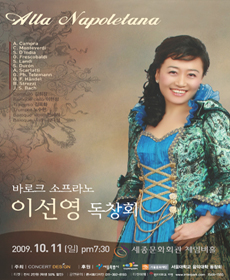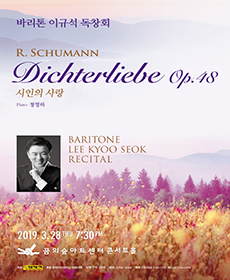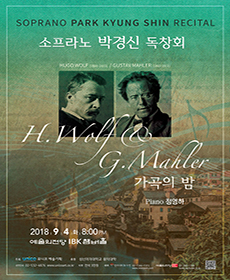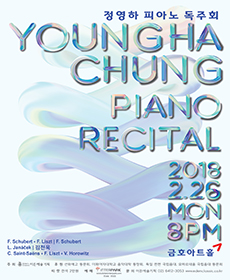미국에서 다년간 수학하고 활동한 테너 박웅철의 귀국독창회로 개최되는 이번 음악회는 바로크 칸타타 아리아와 오라토리오 솔로 곡, 헨델의 작품 중 소프라노와의 이중창 등 바로크 음악을 중심으로 모차르트의 오페라 아리아와 흔히 연주 되지 않는 포레의 연가곡 'La Bonne Chanson(다정한 노래)' 등을 레퍼토리로 학구적이면서도 다양한 장르의 음악을 감상할 수 있는 좋은 기회가 될 것이다.
J. S. Bach (1685~1750)
Benedictus ( from "B minor mass")
G. F. Handel (1685~1759)
Total Eclipse ( from "Samson")
Sound an Alarm! ( from "Judas Maccabaeus")
(with Harpsichord, Baroque cello)
C. Monteverdi (1567~1643)
Dialogo di Ninfa e Pastore
G. F. Handel (1685~1759)
Caro autor - Dagl'amori flagellata - Bella gioja in amorata
(with Soprano, Harpsichord, Baroque cello)
Intermission
W. A. Mozart (1756~1791)
Dies Bildnis ist bezaubernd schon (from Opera "Die Zauberflote" )
G. Faure (1845~1924)
<La Bonne Chanson>
Puisque l’aube grandit
La lune blanche dans le bois
J’allais par des chemins perfides
J’ai presque peur, en verite
Avant que tu ne t’en ailles
Donc, ce sera par un clair jour d’ete
N’est-ce pas?
L’hiver a cesse
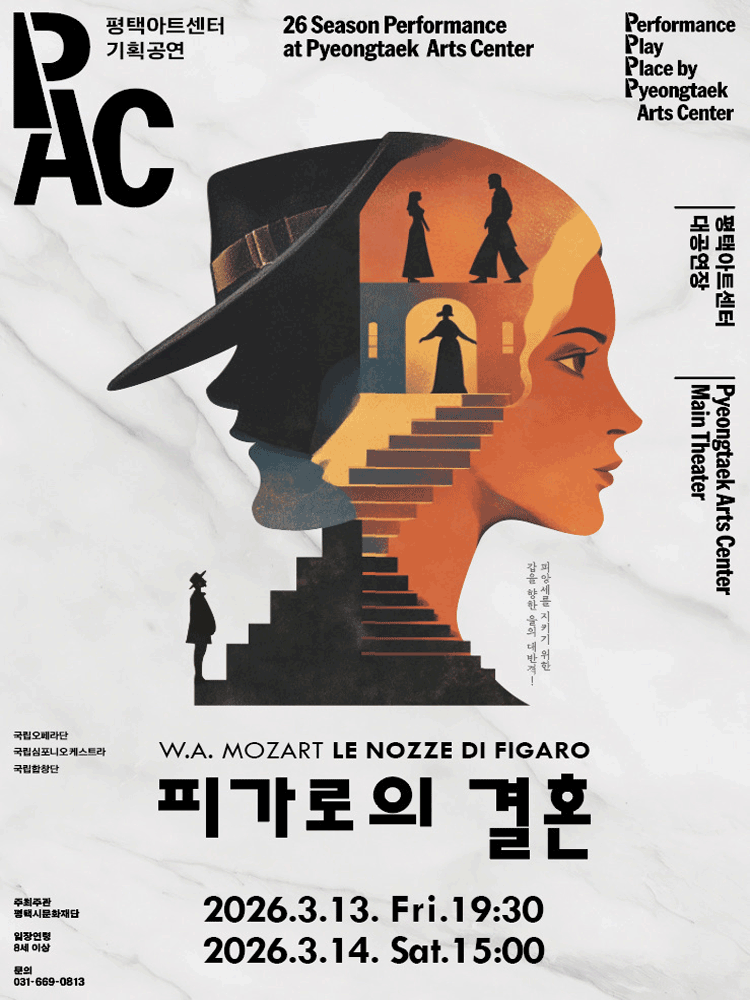 |
|
| 서울솔로이스츠하모니카오케스트.. |  2 2 |
|
| 작곡가 김효근의 K-아트팝 로맨.. |  3 3 |
|
| 세종체임버시리즈 스페셜 스테이.. |  4 4 |
|
| 크리스마스 지브리&디즈니 OST .. |  5 5 |
[2023년 이후로 네이버 연동 서비스는 종료 되었습니다.]


















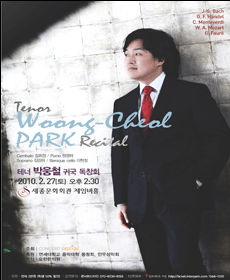













 주간
: -위
주간
: -위 





 첫번째 평가를 해주세요.
첫번째 평가를 해주세요.










